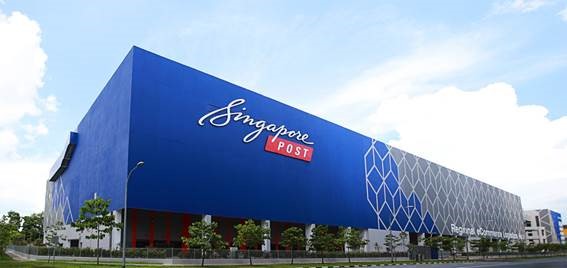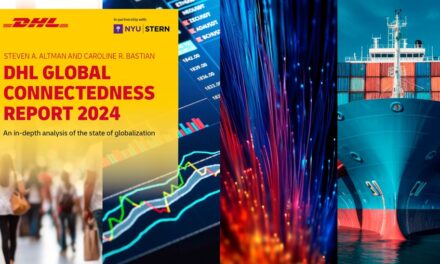
When world trade rebounds, the value of trade will rise faster than volumes, says DHL
DHL, together with the London School of Economics, has revealed that when international trade rebounds in the medium term, it will likely see a rise in the proportion of trade, particularly in value terms, accounted for by the air express industry. DHL, together with the London School of Economics, has revealed that when international trade rebounds in the medium term, it will likely see a rise in the proportion of trade, particularly in value terms, accounted for by the air express industry.
Frank Appel, CEO, Deutsche Post DHL, said: “Trade is critical to economic growth and to global development. It is heartening to note that the one agenda that the recent G20 agreed on was trade promotion. All governments agreed that trade will help in the short-term, and is a critical and inevitable part of long term economic development. As an economic integrator, our role is critical in ensuring that our services meet the growing needs of both developed and developing markets.”
Strong outlook for global trade
The study “International trade, Express Logistics and Globalization: Part and Parcel of the Solution to Current Economic Challenges” revealed that the medium term outlook for global trade remains strong even as trade remains at best stagnant in the short run due to low availability of credit. However, when credit becomes freely available and trade rebounds, the study suggests that the return of trade will not benefit all countries equally.
The study has singled out cost of sea transport and the availability of review procedures as two key prominent factors that influence an economy’s appeal to attract international trade. The findings were based on an analysis of the cost and quality of logistics in Brazil, Russia, India and China (BRIC) which account for 40% of the world’s population and 15% of the global economy and serve as exemplars to other emerging economies.
The cost of air-borne freight is relatively constant for the BRIC countries, compared to the cost of sea borne transport which varies much more dramatically around the world. Countries that provide low cost shipping logistics are more attractive to firms producing generally low value products that are sent by ship. India for example, has shipping costs that are more than 50% higher than those of China, while Russian shipping costs are over four times as high. Should India be able to reduce the cost of shipping to match Chinese levels, its trade would increase by 10% while Brazil and Russia’s trade would increase by 30% and by 50% respectively if they were to match China’s shipping costs.
Reliability is a key issue
The study shows that countries wanting to attract firms that use air express shipments need to look not so much at improving costs, but ensuring reliability and timeliness. In particular, countries where traders can ask for low cost, transparent review of any decisions made on the ground will have a higher share of world trade. The report also notes that effective review procedures are notably absent in the emerging economies, posing a challenge to shippers who intend to import or export time sensitive goods, such as high value “must have” electronics. The analysis has inferred that if these countries were to ensure the discipline and current availability of such reviews, China and India could increase trade by 20%, while Brazil and Russia would increase theirs by 30% during post crisis recovery.
“Transport and logistics costs in particular, outweigh tariffs as the greatest barriers to trade by a factor of 9:1. The study shows that countries which seek to be at the forefront of the next wave of globalisation need to benchmark themselves against global best practices. Export reliant emerging economies can improve trade conditions to strengthen their international trade levels when the global economy rebounds,” said Appel.
Logistics companies & economic rebound in Asia
Given the central role of logistics in International trade, the study postulates that logistics companies play a critical role in supporting economic recovery. As the industry is asset-heavy – with significant investments in planes, ships and vehicles – costs of logistics fluctuate significantly with demand. Accordingly, during the economic downturn, logistics costs have come down substantially, helping to alleviate the full impact of the economic downturn for businesses involved in international trade.
Similarly, logistics companies play an important role in enhancing the attractiveness of Asia as a place to do business. With the rapid growth of Asian purchasing power, logistics companies have remain entrenched in the region, recognizing its strategic role. As logistics services are widely available, this in turn will help countries in the region cope with the economic downturn and be well placed for the upturn.
Growth of air express industry
Looking ahead, the study predicts that the air express industry will continue to grow as a proportion to the rebound in the volume of trade growth, and singles out three major areas of potential expansion in the air express industry – rising demand for individualised health care, demand for documents transfer in international services industry and spare parts for equipment as the economic climate calls for more upgrades and repairs than replacements.
“Air Express remains an important and fast growing sector. The value of international trade has increased by 16-fold in the last half century, largely dominated by high value, time critical goods which require just-in-time deliveries. In recent years, air shipments have grown more than twice the rate of ocean freight over the past 30 years,” said Appel.
“Deutsche Post DHL’s early entry into emerging markets in Asia Pacific, such as China, India, will help us to stay prepared for the upturn. Whether it is time critical deliveries via air or providing support in our supply chain solutions, the logistics industry will become critical as an integrator in generating post crisis economic growth,” he added.













